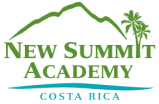"The Milieu" Newsletter Article, written by K.M.
Here at NSA, students vote at the beginning of each quarter to determine a book that they will all read and discuss for the duration of the quarter. For Fall Quarter 2, students voted for Soccer In The Sun and Shadow, by Eduardo Galeano and translated by Mark Fried. The book goes in detail about specific positions, events, and players related to soccer. As part of the integrated reading program, students had an opportunity to interview Mark Fried about the book, Galeano, translating, and his personal life.
Q: What made you want to become a translator?
A: At first it was the desire to share what I learned from living in Latin America, especially the perspective I gained on my own culture. Later on, I found that translating allowed me to use my writing ability creatively, without having to face the greater challenge of coming up with my own content.
Q: How did you get into translating as a career?
A: I was asked by Galeano and his agent to take a stab at translating “We Say No,” a collection of his speeches and journalistic writing. I liked it, they liked me, and we were off. I have done document translation sometimes to make money, and I am paid for the books I do, but I have never made a living at translation. I had too many other interests, and did translation on the side. Only since retiring from my day job two years ago have I worked at translation full time. And literary translation rarely pays well enough to support a family.
Q: What were your first impressions of Galeano?
A: My first impression was from reading “Open Veins of Latin America”. I thought he was a genius. Meeting him face-to-face, my first impression was that he was charismatic, gracious and kind. That proved to be true.
(Click the "Read More" link...)
Q: What made you want to become a translator?
A: At first it was the desire to share what I learned from living in Latin America, especially the perspective I gained on my own culture. Later on, I found that translating allowed me to use my writing ability creatively, without having to face the greater challenge of coming up with my own content.
Q: How did you get into translating as a career?
A: I was asked by Galeano and his agent to take a stab at translating “We Say No,” a collection of his speeches and journalistic writing. I liked it, they liked me, and we were off. I have done document translation sometimes to make money, and I am paid for the books I do, but I have never made a living at translation. I had too many other interests, and did translation on the side. Only since retiring from my day job two years ago have I worked at translation full time. And literary translation rarely pays well enough to support a family.
Q: What were your first impressions of Galeano?
A: My first impression was from reading “Open Veins of Latin America”. I thought he was a genius. Meeting him face-to-face, my first impression was that he was charismatic, gracious and kind. That proved to be true.
(Click the "Read More" link...)
Q: What interests you most about Galeano's writing?
A: I like learning about events and people in history. I like his poetic phrasing, and especially his comic timing. As his translator of course, I found his invented turns of phrase a wonderful challenge.
Q: What do you enjoy most about your job as a translator? What are the greatest challenges in your work?
A: Translating is not unlike doing crossword puzzles. I love the challenge of finding a solution to a problem. I enjoy learning new words and phrases – which I still do, languages are infinite. The greatest challenge is to create something that works in English when there is no direct translation. The translation should be easily understood, but also convey something of the original’s view of the world.
A: I like learning about events and people in history. I like his poetic phrasing, and especially his comic timing. As his translator of course, I found his invented turns of phrase a wonderful challenge.
Q: What do you enjoy most about your job as a translator? What are the greatest challenges in your work?
A: Translating is not unlike doing crossword puzzles. I love the challenge of finding a solution to a problem. I enjoy learning new words and phrases – which I still do, languages are infinite. The greatest challenge is to create something that works in English when there is no direct translation. The translation should be easily understood, but also convey something of the original’s view of the world.

 RSS Feed
RSS Feed